-
Study
-
Quick Links
- Open Days & Events
- Real-World Learning
- Unlock Your Potential
- Tuition Fees, Funding & Scholarships
- Real World Learning
-
Undergraduate
- Application Guides
- UCAS Exhibitions
- Extended Degrees
- School & College Outreach
- Information for Parents
-
Postgraduate
- Application Guide
- Postgraduate Research Degrees
- Flexible Learning
- Change Direction
- Register your Interest
-
Student Life
- Students' Union
- The Hub - Student Blog
- Accommodation
- Northumbria Sport
- Support for Students
-
Learning Experience
- Real-World Learning
- Research-enriched learning
- Graduate Futures
- The Business Clinic
- Study Abroad
-
-
International
International
Northumbria’s global footprint touches every continent across the world, through our global partnerships across 17 institutions in 10 countries, to our 277,000 strong alumni community and 150 recruitment partners – we prepare our students for the challenges of tomorrow. Discover more about how to join Northumbria’s global family or our partnerships.
View our Global Footprint-
Quick Links
- Course Search
- Undergraduate Study
- Postgraduate Study
- Information for Parents
- London Campus
- Northumbria Pathway
- Cost of Living
- Sign up for Information
-
International Students
- Information for International Students
- Northumbria and your Country
- International Events
- Application Guide
- Entry Requirements and Education Country Agents
- Global Offices and Regional Teams
- English Requirements
- English Language Centre
- International student support
- Cost of Living
-
International Fees and Funding
- International Undergraduate Fees
- International Undergraduate Funding
- International Masters Fees
- International Masters Funding
- International Postgraduate Research Fees
- International Postgraduate Research Funding
- Useful Financial Information
-
International Partners
- Agent and Representatives Network
- Global Partnerships
- Global Community
-
International Mobility
- Study Abroad
- Information for Incoming Exchange Students
-
-
Business
Business
The world is changing faster than ever before. The future is there to be won by organisations who find ways to turn today's possibilities into tomorrows competitive edge. In a connected world, collaboration can be the key to success.
More on our Business Services-
Business Quick Links
- Contact Us
- Business Events
- Research and Consultancy
- Education and Training
- Workforce Development Courses
- Join our mailing list
-
Education and Training
- Higher and Degree Apprenticeships
- Continuing Professional Development
- Apprenticeship Fees & Funding
- Apprenticeship FAQs
- How to Develop an Apprentice
- Apprenticeship Vacancies
- Enquire Now
-
Research and Consultancy
- Space
- Energy
- AI Futures
- CHASE: Centre for Health and Social Equity
- NESST
-
-
Research
Research
Northumbria is a research-rich, business-focused, professional university with a global reputation for academic quality. We conduct ground-breaking research that is responsive to the science & technology, health & well being, economic and social and arts & cultural needs for the communities
Discover more about our Research-
Quick Links
- Research Peaks of Excellence
- Academic Departments
- Research Staff
- Postgraduate Research Studentships
- Research Events
-
Research at Northumbria
- Interdisciplinary Research Themes
- Research Impact
- REF
- Partners and Collaborators
-
Support for Researchers
- Research and Innovation Services Staff
- Researcher Development and Training
- Ethics, Integrity, and Trusted Research
- University Library
- Vice Chancellors Fellows
-
Research Degrees
- Postgraduate Research Overview
- Doctoral Training Partnerships and Centres
- Academic Departments
-
Research Culture
- Research Culture
- Research Culture Action Plan
- Concordats and Commitments
-
-
About Us
-
About Northumbria
- Our Strategy
- Our Staff
- Our Schools
- Place and Partnerships
- Leadership & Governance
- University Services
- Northumbria History
- Contact us
- Online Shop
-
-
Alumni
Alumni
Northumbria University is renowned for the calibre of its business-ready graduates. Our alumni network has over 253,000 graduates based in 178 countries worldwide in a range of sectors, our alumni are making a real impact on the world.
Our Alumni - Work For Us
This page provides details about the current PhD researchers and recent PhD graduates of the Centre for Global Development, including their thematic focus and contact details. If you are interested in commencing postgraduate study in this area, please contact Prof Katy Jenkins or Prof Matt Baillie Smith, co-Directors of the Centre.
- Current PhD researchers
 Adam Cross
Adam Cross
Supervisors: Dr Joanna Allan, Prof Katy Jenkins and Dr Inge Boudewijn
PhD research summary: Adam’s PhD research investigates the resistance practices of women land and environmental defenders in Colombia who are affected by forced displacement. His project focuses on how displacement driven by armed conflict, dispossession and ecological destruction provokes experiences of dislocation and loss, but also creates spaces within which new relationships with community, territory, and place are generated. Adam’s research uses decolonial and feminist perspectives to analyse the diverse knowledges and resistance practices which emerge from contexts shaped by patriarchy, racism, and intersecting histories of colonialism and development.
Email: adam.g.cross@northumbria.ac.uk
LinkedIn: Adam's LinkedIn Profile
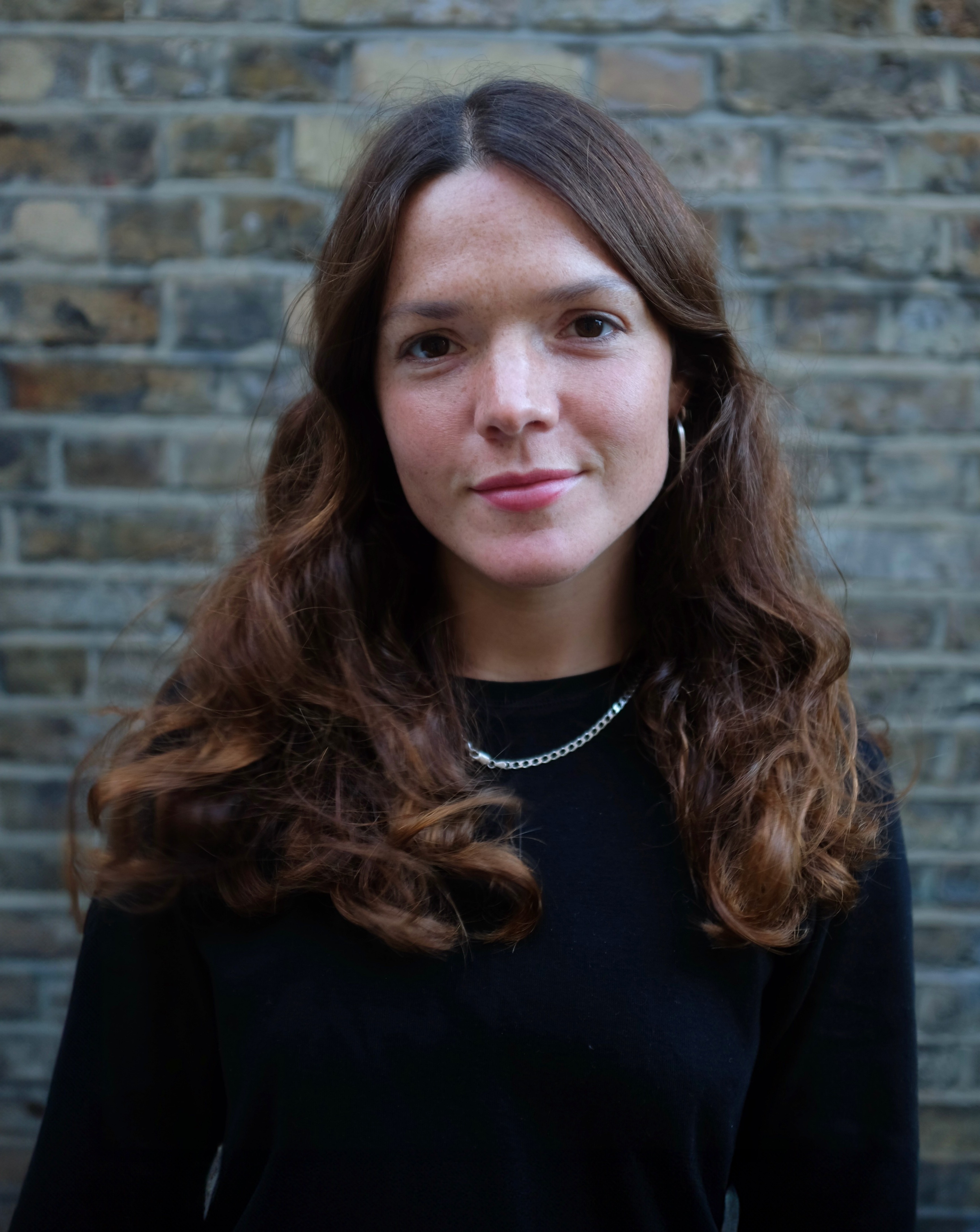 Aishath Green
Aishath Green
Supervisors: Prof Katy Jenkins, Dr Paul Griffin and Dr Sarah Peck
PhD working title: The role of women’s organisations in social dialogue for gender just transitions in global food supply chains
PhD research summary: In partnership with Ethical Trading Initiative (ETI) and Women Working Worldwide (WWW), this research explores the involvement of diverse women’s organisations in collective organising and social dialogue to promote gender just transitions in global food supply chains (more details about the collaborative PhD here). Through archival research, stakeholder interviews, oral history interviews and participatory photography with women workers in the tea production and supply chain, the research brings together development studies, labour geographies, and historical geographies, to develop a multi-scalar understanding of the challenges in achieving gender just transitions, and the role of women’s organisations in social dialogue processes aiming to secure workers’ rights and affect change.
Email: aishath.green@northumbria.ac.uk
LinkedIn: Aishath’s LinkedIn Profile
 Ana Camila Ribeiro
Moreira (Visiting PhD Researcher)
Ana Camila Ribeiro
Moreira (Visiting PhD Researcher)
Supervisors: Dr Ana Laura Zavala Guillen (Northumbria University, UK) and Dr Candice Vidal e Souza (Pontifícia Universidade Católica de Minas Gerais - PUC-MG, Brazil)
PhD working title: Transnationalisation of the Maroon communities’ struggles in Alcântara, Brazil
PhD research summary: Since the 1980s, the Brazilian state has systematically displaced Maroon ('Quilombola') communities in Alcântara, Northeast Brazil, in order to construct and expand the Alcântara Space Centre, a rocket launch site. The remaining communities have constantly been threatened by the military. In response to years of oppression, the Maroons formally submitted their case to the Inter-American Commission on Human Rights (IACHR) in 2001. They also appealed to the International Labour Organisation (ILO) in 2008. Ultimately, in April 2023, Brazil was found guilty of violating the human rights of Alcântara’s Maroon communities by the Inter-American Court of Human Rights. Consequently, Brazil officially apologised to the ethnic groups and recognised their collective land rights. This study therefore aims to analyse the transnationalisation of the ‘Quilombolas’ struggle in Alcântara, emphasising their networks with the human rights mechanisms of the IACHR and ITO.
Email: ana.c.r.moreira@northumbria.ac.uk
LinkedIn: Ana's LinkedIn Profile
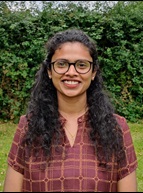 Aneeta Shajan
Aneeta Shajan
Supervisors: Prof Steve Taylor and Prof Katy Jenkins
PhD research summary: Aneeta's PhD research looks at return migration from Gulf economic region to Kerala, India. The research aims to conceptualise the impact of migration on the health outcomes of migrants in the Kerala‐Gulf corridor. The effect is analysed by examining if and how temporary international migration has brought about accelerated health vulnerabilities amongst migrants compared to non‐migrants from the same origin area. It does so by navigating how migration has led to better opportunities, income, lifestyle, and quality of life and how these factors have affected the health‐seeking behaviours of migrants in the destination country.
Email: aneeta.shajan@northumbria.ac.uk
LinkedIn: Aneeta’s LinkedIn Profile
 Angelica Ribichini
Angelica Ribichini
Supervisors: Dr Oliver Hensengerth, Prof Matt Baillie Smith and Dr Joanna Allan
PhD research summary: Through an intersectional feminist lens, Angelica's research explores youth vulnerability and adaptive capacity to climate change in the Vietnamese Mekong Delta - a region that is widely considered to be one of the most exposed to the impacts of climate change globally. Employing a participatory action research (PAR) methodology, the project seeks to illuminate how intersecting markers of power and inequality shape young people's experience of, and ability to cope with, changing living conditions in the delta area.
Email: angelica.ribichini@northumbria.ac.uk
 Daniel
Walsh
Daniel
Walsh
Supervisors: Dr Pete Howson and Dr Paul Dolan
PhD research summary: McKinsey forecasted that the space economy will be worth $1.8 trillion by 2035, highlighting the expanding commercialisation of outer space. The crux of the expanding space economy is the launch vehicle (i.e. rocket) without which the space economy could not function. Little is known about the ‘production networks’ of launch vehicles and how these are enmeshed within the economic development of specific locations. Building on an emergent body of scholarship in ‘geographies of outer space’, Daniel’s PhD research seeks to investigate how the production networks of launch vehicles influences economic development in the United States, particularly New Mexico and the ‘Gulf South’ (Texas, Louisiana, and Mississippi). Daniel’s research is situated at the intersection of economic geography, political geography, and geopolitical ecology. Ethnographic fieldwork will be undertaken in late 2025 and early 2026.
Email: daniel4.walsh@northumbria.ac.uk
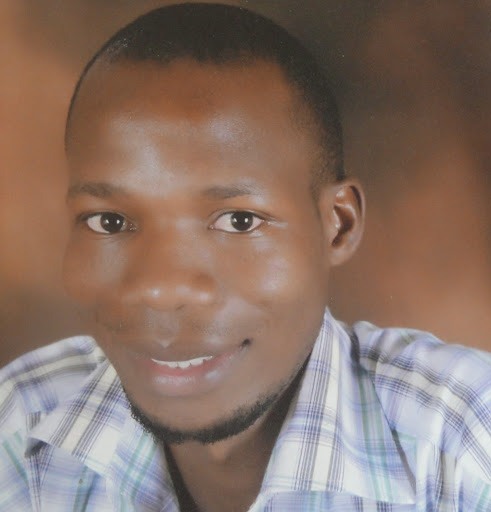 Geoffrey Bwireh
Geoffrey Bwireh
Supervisors: Prof Robert Newbery and Prof Matt Baillie Smith
PhD working title: Volunteerism, mixed embeddedness and entrepreneurial behaviour of Congolese youth refugees in Nakivale settlement in Uganda
PhD research summary: Geoffrey’s PhD analyses human capital, volunteerism, social networks, and performance of youth refugees owned micro-enterprises in Ugandan refugee settlements. Existing evidence suggests that engaging refugees in entrepreneurial activities can support their embeddedness within society; at the same time, volunteerism is increasingly being celebrated as a silver bullet strategy for enhancing aid and development in the global South. However, although the majority of the world’s refugee population is hosted in global South countries, research into refugees entrepreneurship has mainly focused on issues of mobility and individuals’ dual-embeddedness within host countries of the global North. This research thus explores human capital, volunteerism and social networks through the experiences of young refugee entrepreneurs living in Uganda refugee settlements.
E-mail: geoffrey.bwireh@northumbria.ac.uk
LinkedIn: Geoffrey’s LinkedIn Profile
X/Twitter: @GeffreyBwireh
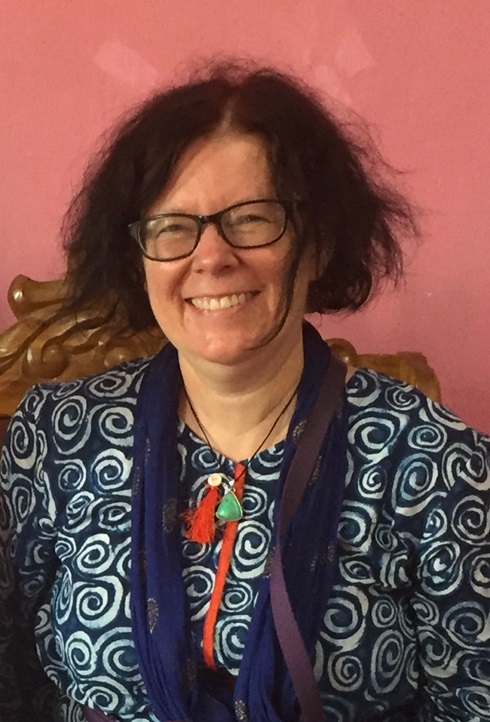 Janet Clark
Janet Clark
Supervisors: Prof Matt Baillie Smith, Prof Katy Jenkins and Dr Bianca Fadel
PhD research summary: Janet’s PhD research is in collaboration with the International Forum for Volunteering in Development (more details about the collaborative PhD here). It explores the changing relationships between volunteering and development as ideas and practices have been challenged by the Covid-19 pandemic, the climate emergency, decolonisation and reduced aid budgets. The research will analyse how organisations working with volunteers are responding to these challenges and whether these responses have prompted a more socially just and equitable reimagining of volunteering.
Email: j.m.clark@northumbria.ac.uk
Relevant publications:
Abu Saleh, A. S. M. M. R., Haque, M. F., Clark, J., & Chandan, M. S. K. (2025). The role of theatre for development in reducing prevalent harmful traditional practices in the rural north of Bangladesh. Community Development Journal. https://doi.org/10.1093/cdj/bsaf014
Hayes, F., Clark, J., & McCauley, M. (2020). Healthcare providers’ and managers’ knowledge, attitudes and perceptions regarding international medical volunteering in Uganda: a qualitative study. BMJ Open, 10. https://doi.org/10.1136/bmjopen-2020-039722
Clark, J.,
& Lewis, S.K. (2017). Impact beyond volunteering: A realist evaluation
of the complex and long-term pathways of volunteer impact. https://www.vsointernational.org/sites/default/files/VSO_ImpactBeyondVolunteering_MainReport_web.pdf
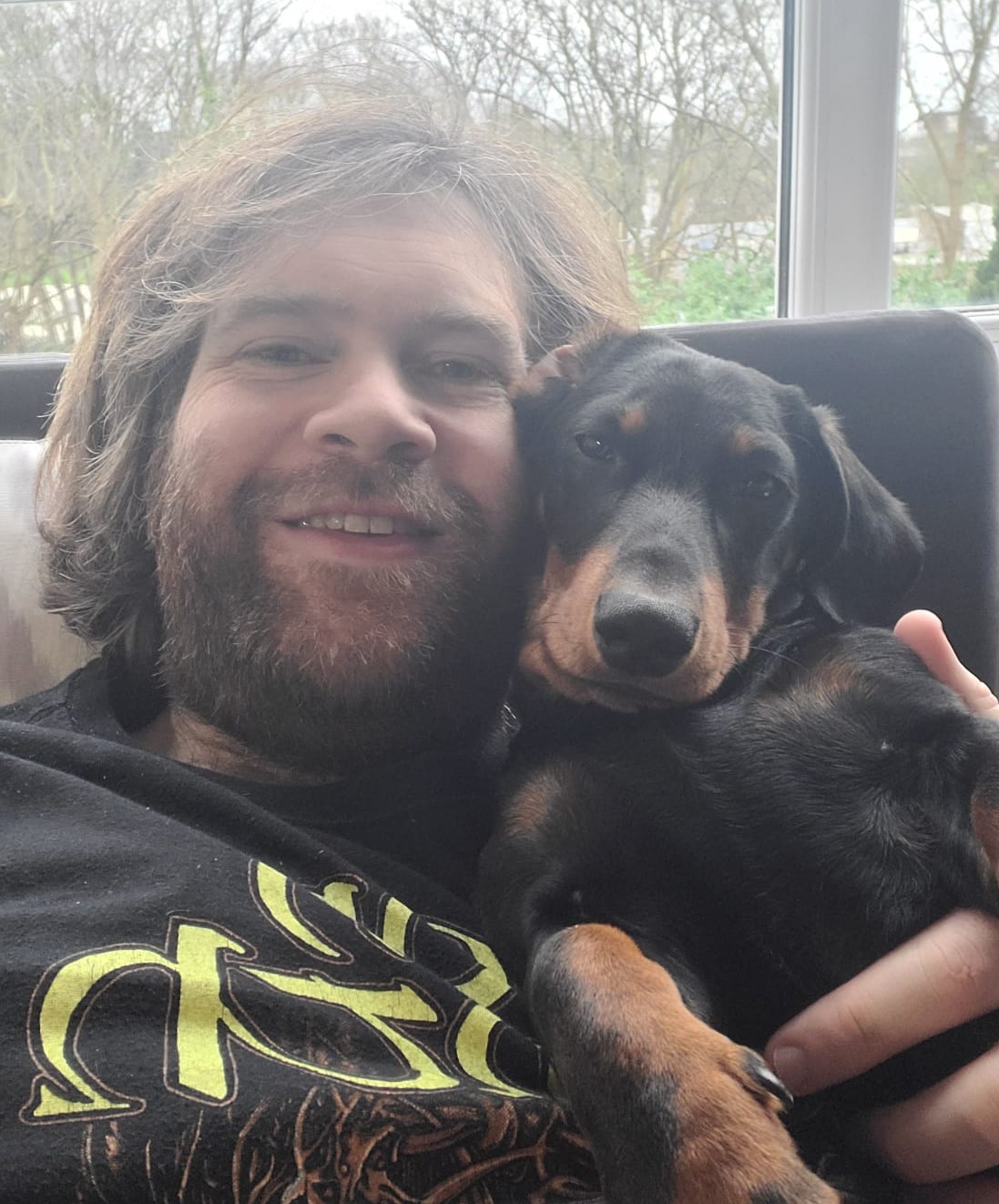 Jos Bamborough
Jos Bamborough
Supervisor: Prof Matt Baillie Smith
PhD research summary: Joseph’s research project explores concepts at the heart of contemporary thinking around humanitarian response through a lens of ‘everyday’ work within international non-governmental organisations (iNGOs). It builds on four critical (and overlapping) bodies of literature: population displacement, humanitarian localisation, supply chain management, and ‘geographies of the everyday’, within the context of conflict in the Middle East, to develop an understanding of how workers manage the flow of goods and services, funds, and information through their supply chains.
Email: joseph.w.h.bamborough@northumbria.ac.uk
LinkedIn: Joseph's LinkedIn profile
 Lindsay Bewick
Lindsay Bewick
Supervisors: Prof Matt Baillie Smith and Prof Katy Jenkins
PhD research summary: Lindsay's PhD research seeks to critically explore the ways in which entrepreneurial activities enable urban women refugees to create livelihoods opportunities, focusing on three key inter-related lenses – biographies, solidarities and space. Taking the emphasis away from current policy and programming which has a narrow focus on how entrepreneurship leads to local economic contributions, the broader everyday experiences and interactions of urban women refugees will be investigated using visual and participatory methods. The research will take place in Uganda.
Email: lindsay.s.bewick@northumbria.ac.uk
LinkedIn: Lindsay's LinkedIn profile
 Sichelesile N. Maxine Mpofu
Sichelesile N. Maxine Mpofu
Supervisors: Prof Matt Baillie Smith and Dr Reem Refaat Talhouk
PhD working title: A critical analysis of how young people with disabilities shape the development of rural Zimbabwe
PhD research summary: Maxine is interested in Youth Geographies, with a particular focus on the elasticity of young personhood and the nuanced experience of global development. The current research project employs Participatory Research approaches to collaborate with diverse young people with disabilities in interrogating the nature of Participatory Development in rural Zimbabwe. The project seeks to contribute to studies filling the dearth of Development Geographies literature that captures decolonised youth narratives, by the youth and for the youth in the global South.
Email: maxine.mpofu@northumbria.ac.uk
LinkedIn: Maxine's LinkedIn Profile
X/Twitter: @maxine_mpofu
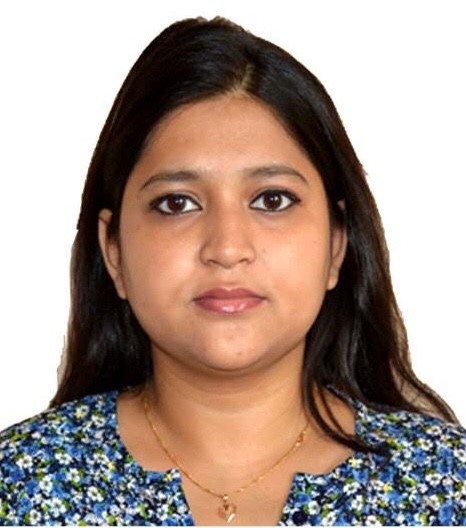 Shamima Akter Shanu
Shamima Akter Shanu
Supervisors: Prof Matt Baillie Smith and Dr Katie Oven
PhD working title: Voluntary labour in the climate emergency: Exploring the experiences of youth volunteers in the context of the climate-vulnerable Bengal Delta
PhD research summary: Shamima’s PhD research explores the roles of youth volunteers in climate emergency at the Bengal delta in South Asia. This delta is repeatedly affected by disasters and ongoing climate impacts. Despite inclusion in diverse policy objectives and ambitions, young volunteers’ lived experiences, voices and practices are absent from popular, scholarly and policy thinking. Therefore, this research aims to explore the everyday life experiences of those marginal youth volunteers amongst climate vulnerable communities in Bangladesh. This research adopts participatory research approaches to collaborate with diverse stakeholders in the coastal communities in order to generate new knowledge that will contribute to both volunteer and climate change domains separately and combinedly. Shamima’s overall research interests are related to climate change adaptation, disasters risk reduction, water and sanitation, mangrove ecosystem and deltaic ecosystem.
Email: s.shanu@northumbria.ac.uk
LinkedIn: Shamima’s LinkedIn profile
X/Twitter: @ShamimaShanu
 Zohreh Fakhari
Zohreh Fakhari
Supervisors: Prof Matt Baillie Smith, Dr Bianca Fadel and Dr Reem Refaat Talhouk
PhD working title: Voluntary labour and climate adaptation: The role of humanitarian health interventions
PhD research summary: Zohreh’s doctoral research examines how humanitarian organisations mobilise voluntary labour in response to the health impacts of climate change. Funded by the NINE DTP ESRC Studentship, her project investigates how different forms of unpaid labour shape locally-led adaptation strategies, and the implications for both communities and the volunteers themselves. The study will explore the intersection of humanitarian health interventions, climate adaptation, and voluntary action. By interrogating the humanitarian-climate nexus, Zohreh’s work highlights the overlooked yet vital contributions of community volunteers in climate-affected settings and offers new insights for policy and practice in humanitarian health and climate resilience.
Email: zohreh.fakhari@northumbria.ac.uk
LinkedIn: Zohreh's LinkedIn profile
- Recent PhD graduates (2024-2025)
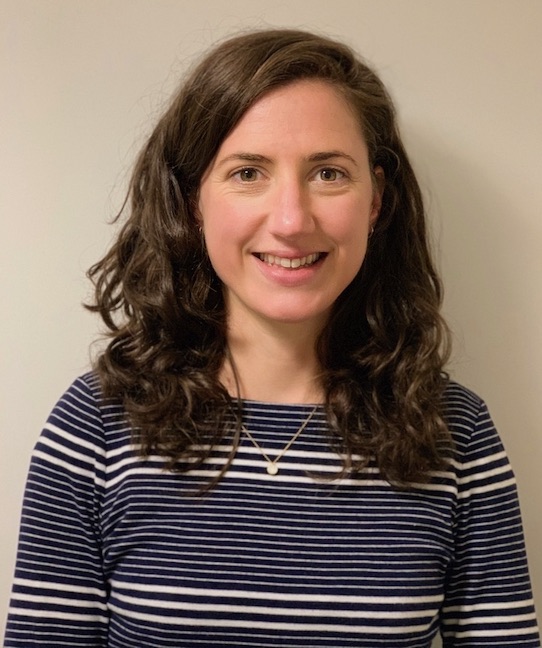 Dr Becky Richardson
Dr Becky Richardson
Supervisors: Prof Andrew Collins, Dr Katie Oven and Dr John Clayton
PhD title: Children’s engagement and communication with everyday hazards and risks in Nairobi’s informal settlements
PhD summary: Becky’s research seeks to critically explore child-centred health risk communication within the field of disaster risk reduction (DRR) with children living in informal settlements in Nairobi, Kenya. Children have the right to be heard and listened to, as stated in the United Nations Convention on the Rights of a Child (UNCRC, 1989) yet their voices rarely contribute to policy or practice despite being a marginalised group. This research applies a child-centred approach to understand children’s perceptions of hazard and risk that impact their health and wellbeing in school and their neighbourhood. Those risks are then explored further to see how they are communicated within the child’s own networks and linked to local level innovative solutions to reduce risk and improve health and wellbeing. A participatory action research (PAR) method is applied, adopting creative and arts-based tools to enhance engagement, trust, and equality in power relationships. Methods include deep mapping, walking interviews, body mapping, model-making, storytelling, and drawing.
Relevant publications:
Richardson, R., & Collins, A. E. (2023). Infectious disease risk communication and engagement using puppetry and related approaches for improving handwashing with soap in an informal settlement of Nairobi. International Journal of Disaster Risk Reduction, 84, Article 103477. https://doi.org/10.1016/j.ijdrr.2022.103477
 Dr Benita Ebindu Siloko
Dr Benita Ebindu Siloko
Supervisors: Dr Oliver Hensengerth and Prof Helena Farrand Carrapico
PhD title: Human security, livelihoods and environmental degradation in the Niger Delta Region, Nigeria
PhD abstract: This thesis critically examines the complex connections between environmental degradation and livelihoods in relation to human security in the Niger Delta of Nigeria. This region is pervaded by a web of socio-economic and environmental issues that have severely impacted the lives of people and communities due to environmental degradation. For example, the exploration and exploitation of natural resources in this region has had extensive consequences on the livelihood activities of the people. Moreover, the Niger Delta has been affected by persistent social instabilities and a lack of access to some of the basic assets of security, including personal, health, economic and environmental security. While the concepts of livelihoods and environmental degradation are reasonably well understood in the context of the Niger Delta, the complex links between them in relation to human security remain unexplored. To examine how environmental degradation impacts livelihoods, this thesis explores the concept of human security, emancipation following a rights-based approach in line with the sustainable livelihood framework. Furthermore, it draws from semi-structured interviews conducted in the region on the lived experiences of community members, such as farmers and fishers, and their challenges in bridging generational crises in the context of environmental degradation and long-lasting political repression and conflicts which have affected people’s livelihood activities in diverse ways. The analysis of the Niger Delta as a case study hence develops a critical conceptualisation of environmental degradation that reveals the complex connection between livelihood, human security and vulnerabilities. Therefore, the thesis contributes to the refinement and further development of theory to operationalise human security and emancipation. I argue that understanding the interconnectedness of security and livelihood issues in the context of such crises provides an innovative approach to considering both environmental and social factors in sustainable development, which is essential for the overall well-being of people in the region.
LinkedIn: Benita's LinkedIn Profile
X/Twitter: @BenitaSiloko
Relevant publications:
Siloko, B. E. (2024). Human security, sustainable livelihoods and development: the case of the Niger Delta region in Nigeria. Global Discourse: An interdisciplinary journal of current affairs, 14(2-3), 411–432. https://doi.org/10.1332/20437897Y2024D000000037
Ukhurebor, K. E., Aigbe, U. O., Onyancha, R. B., Athar, H., Okundaye, B., Aidonojie, P. A., Siloko, B. E., Hossain, I., Kusuma, H. S., & Darmokoesoemo, H. (2024). Environmental influence of gas flaring: perspective from the Niger Delta region of Nigeria. Geofluids, Article ID 1321022. https://doi.org/10.1155/2024/1321022
 Dr Bina Limbu
Dr Bina Limbu
Supervisors: Dr Katie Oven, Dr Sarah Hughes and Dr Olivia Mason
PhD title: Households at risk: Exploring everyday vulnerabilities and decision-making in relation to geohazards in the rural Mid-Hills of Nepal
PhD summary: Owner-driven approaches to disaster risk reduction (DRR) have been globally endorsed under the Sendai Framework 2015-2030, however, much ambiguity exists regarding how to effectively integrate community participation and local knowledge into DRR practices. The current literatures contrastingly portray disaster-affected people either as ‘suffering victims’ driven to risky locations, or as the ‘drivers of their own change’ possessing indigenous knowledge and social capital. However, in the messiness of everyday reality, householders constantly negotiate with state and non-state bodies to rebuild their lives and livelihoods, but do they end up any more resilient than before? This research aims to seek answers by carrying out ethnographic study of people living in geo-hazardous locations in Dhading district of Nepal (prone to landslides, floods and earthquakes). In doing so, this study explores what kind of socio-economic, political, and environmental factors interplay in their everyday lives and how these shape their agency and decisions-making regarding hazards.
LinkedIn: Bina's LinkedIn Profile
Relevant publications:
Aijazi, O., Amburgey, E., Limbu, B., Suji, M., Binks, J., Balaz-Munn, C., Rankin, K., & Shneiderman, S. (2021). The Ethnography of Collaboration: Navigating Power Relationships in Joint Research. Collaborative Anthropologies, 13(2), 56-99. https://doi.org/10.1353/cla.2021.0003
Le Billon, P., Suji, M., Baniya, J., Limbu, B., Paudel, D., Rankin, K., Rawal, N., & Shneiderman, S. (2020). Disaster Financialization: Earthquakes, Cashflows and Shifting Household Economies in Nepal. Development and Change, 51(4), 939-969. https://doi.org/10.1111/dech.12603
Limbu, B., Baniya, J., Suji, M., & Shneiderman, S. (2019, 19 February 2019). Reconstruction conundrums. The Kathmandu Post. https://kathmandupost.com/opinion/2019/02/19/reconstruction-conundrums
Limbu, B., Rawal, N., Suji, M., Subedi, P., & Baniya, J. (2019). Reconstructing Nepal: Post-Earthquake Experiences from Bhaktapur, Dhading and Sindhupalchowk. https://soscbaha.org/publication/reconstructing-nepal-post-earthquake-experiences-from-bhaktapur-dhading-and-sindhupalchowk/
Shneiderman, S., Hirslund, D., Baniya, J., Billon, P. L., Limbu, B., Pandey, B., Rankin, K., Rawal, N., Subedi, P. C., Suji, M., Thapa, D., & Warner, C. (2021). Expertise, Labour, and Mobility in Nepal's Post-Conflict, Post-Disaster Reconstruction: Law, Construction, and Finance as Domains of Social Transformation. In M. Liechty, M. Hutt, & S. Lotter (Eds.), Epicentre to Aftermath: Rebuilding and Remembering in the Wake of Nepal's Earthquakes (pp. 49-86). Cambridge University Press. https://doi.org/10.1017/9781108991636.003
Shneiderman, S. B., Limbu, B., Baniya, J., Suji, M., Rawal, N., Subedi, P. C., & Warner, C. D. (2022). House, Household, and Home: Revisiting Anthropological and Policy Frameworks through Post-Earthquake Reconstruction Experiences in Nepal. Current Anthropology.
Suji, M., Limbu, B., Rawal, N., Subedi, P. C., & Baniya, J. (2020). Reconstructing Nepal: Bhaktapur—Heritage and Urban Reconstruction [Working paper]. https://soscbaha.org/publication/reconstructing-nepal-bhaktapur/
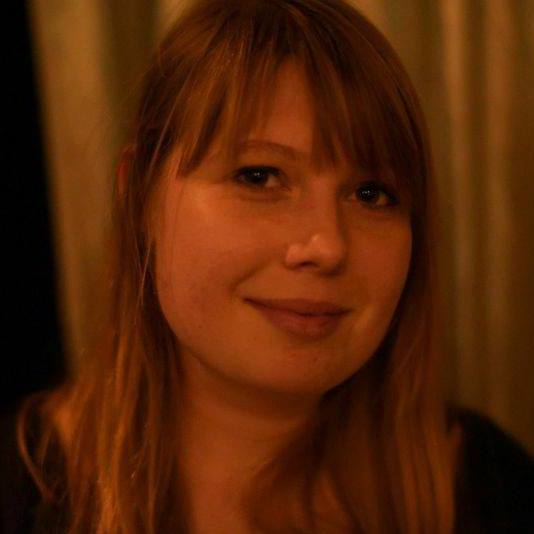 Dr Floor
van der Hout
Dr Floor
van der Hout
Supervisors: Prof Katy Jenkins and Dr Hilary Francis
PhD abstract: This thesis argues that in their resistance against extractivist projects, women territory defenders in Bolivia weave meshworks of resistance through embodied, affective, and careful politics in which different spaces, people and subjectivities are woven together as the fabric of resistance emerges from the women’s bodies-territories. In my analysis, I bring together anglophone geographies of resistance literature that considers resistance as an emergent practice, shaped by complex entanglements of dominating and resisting power, with anticolonial feminist proposals from Abya Yala that firmly locate processes of resistant becoming within the materialities of women’s bodies that are seen as ontologically inseparable from the territory/land and proposed as primary site of analysis. Conceptualising resistance as emerging relationally across time and space, I address the lack of empirical detail about women territory defenders’ embodied weaving practices in the cuerpo-territorio (body-territory) literature. I furthermore critically analyse how embodied experiences related to extractive violence can lead to the unravelling of these webs of resistance. Bolivia offers a particularly pertinent setting to explore these unravellings, given the current situation of growing authoritarianism, political polarisation, and divisions within social movements in the country. How these political processes play out at the micro-level, particularly at the scale of families and communities, remains largely overlooked in the literature. In this thesis, I aim to deepen knowledge of resistance as an embodied and prefigurative process. I draw on six months of ethnographic fieldwork in Bolivia in 2019 and 2020 across two sites of women’s anti-extractive resistance: the Tariquía Flora and Fauna National Reserve and the Indigenous Territory and National Park Isiboro Sécuré, where I traced the threads of women’s resistance in their embodied emergence through a decolonial feminist epistemological and methodological approach that I call acompañar [to accompany]. I argue that in women territory defenders’ anti-extractive resistance, their body-territories simultaneously become sites of domination and resistance, challenging past-present, individual-collective, and human-nature dichotomies. Webs of resistant relationships are slowly woven across time and space through women’s everyday affective and careful politics that enable and sustain anti-extractive action. The defensoras carefully position themselves, navigating power inequalities, as they weave alliances across difference with external actors in a quickly changing political landscape. While emotions and embodiment enable the weaving of resistance on the one hand, the defensoras’ embodied experiences can also result in the unravelling of the fabric of resistance in context of the violence and temporalities that characterise socio-environmental conflicts. I conclude that prefiguration – ways of being, seeing, and knowing otherwise that foreground care, the relational, the collective and re-existencia (re-existence) – is crucial in imagining and creating post-extractive alternatives. Together, these points illustrate how meshworks of resistance carry the potential to contest as well as reinforce intersecting colonial, patriarchal, and capitalist systems of oppression, as they are always bound up with domination.
Relevant publications:
Van der Hout, F. (2022). From Colonial Extractivism to Hearting and Feelthinking, Contention, 10(1), 46-64. https://doi.org/10.3167/cont.2022.100105
Rasch, E. D., Van der Hout, F., & Köhne, M. (2022). Engaged Anthropology and Scholar Activism, Contention, 10(1), 1-12. https://doi.org/10.3167/cont.2022.100102
X/Twitter: @FloorHout
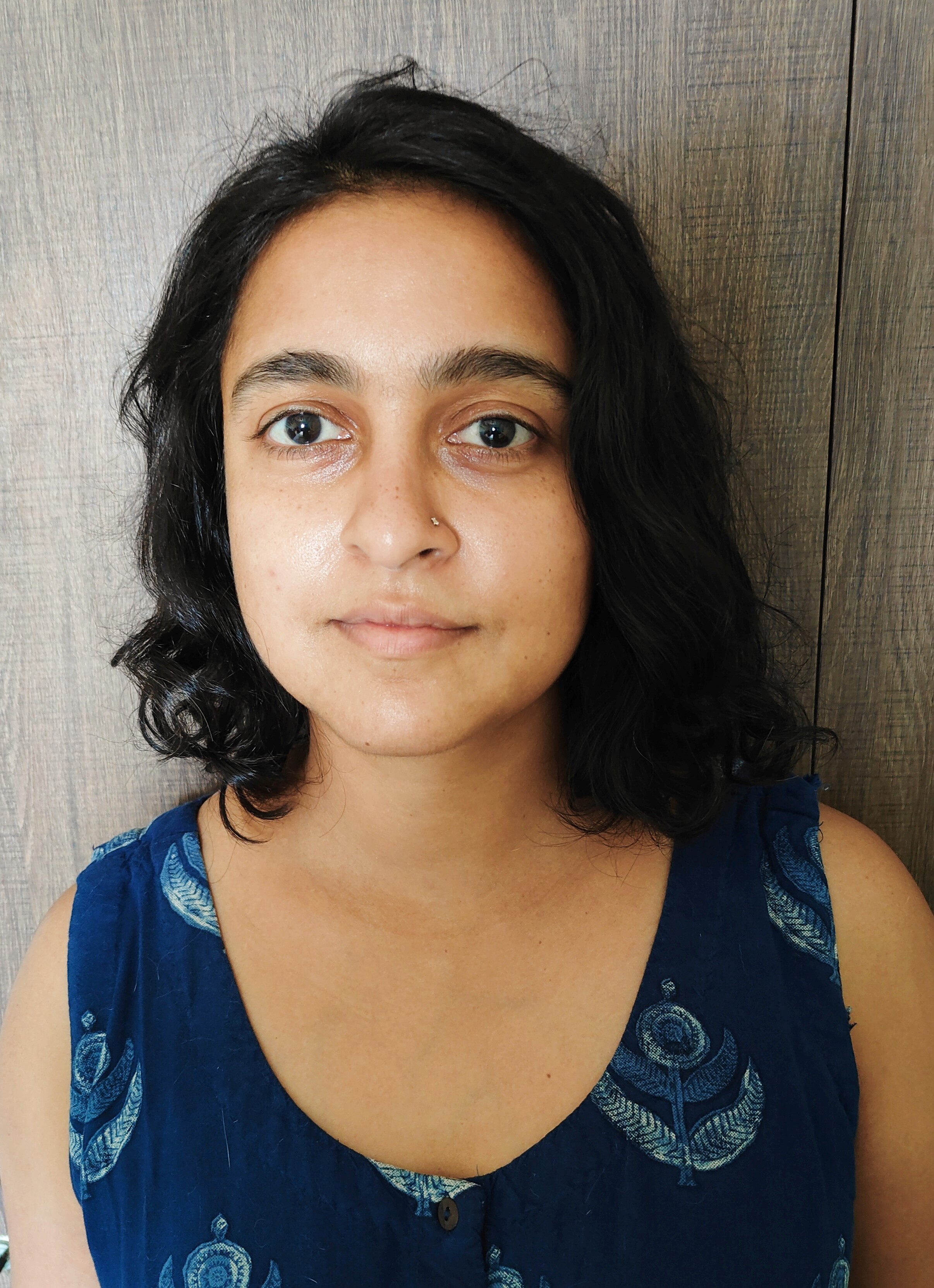 Dr Mridula Mary Paul
Dr Mridula Mary Paul
Supervisors: Dr Francis Masse and Prof Andrew Collins
PhD title: The making of One Health: Emotional and cultural political ecologies of tackling zoonoses
PhD summary: Although zoonotic diseases have significantly impacted already vulnerable forest-/wildlife-dependant and herder communities in developing countries, the thrust of the global response to zoonoses is surveillance and ‘hotspot’ mapping with the expressed goal of containing the spread “closer to their source” i.e., locations in the global South. The scientific research on zoonoses that inform policies for response are therefore political endeavours as much as scientific ones, because they implicitly confer certain spaces and groups of people with more culpability for zoonotic disease emergence. As a dominant paradigm addressing public health and zoonoses, One Health provides the ideal ground for exploring the cultural politics of the science and expertise underpinning global responses to zoonoses. The PhD project aims to merge the political ecology of human-animal relations and the political ecology of health, thereby contributing to the emerging field of political ecology of zoonoses and One Health.
E-mail: mridula.paul@northumbria.ac.uk
X/Twitter: @MridulaMPaul
 Dr Robert Bowden
Dr Robert Bowden
Supervisor: Prof Matt Baillie Smith
PhD title: Localisation and global social change: agency, intent and learning in INGO/supporter relations
PhD summary: My research focuses on the dynamics of INGO/supporter relations in what is a critical conjuncture of external and internal factors affecting many large UK-based INGOs and their role and legitimacy within international development and civil society spaces. How does a large INGO, weighed down by historicised patterns of cultural behaviour adapt to a changing ecology of activism and what does this mean for the organisation and for those who work for it? I develop new conceptual insights based on a longitudinal study of cultural transformation and resistance and consider the implications of this for learning more widely within the sector and beyond.
Email: rob.bowden@lifeworldslearning.co.uk
LinkedIn: Robert Bowden's LinkedIn profile
 Dr Robert Olet Egwea
Dr Robert Olet Egwea
Supervisors: Prof Matt Baillie Smith and Dr Francis Masse
PhD title: The impact of tree protection strategies on rural livelihoods in the shea tree belt of Uganda
PhD summary: Robert’s PhD research investigates the impact of tree protection strategies on livelihoods in Uganda's shea tree belt, a vital ecosystem supporting the livelihoods of millions of people in a region that has experienced significant deforestation in recent years, leading to soil erosion, loss of biodiversity, reduced water quality, poverty, and food insecurity. The study will contribute to knowledge on deforestation, climate change mitigation, and livelihood outcomes in the global South by providing insights into the complex interrelationships between various tree protection strategies, challenges, and livelihoods in the shea tree belt. The original contribution to knowledge in this study lies in the synthesis of the concepts of agency, theory of access and sustainable livelihoods approach to understand these relationships. While previous studies have explored the environmental benefits of tree protection strategies, this study highlights the crucial role of the strategies in supporting the livelihoods of rural communities in the global south, particularly in the shea tree belt.
LinkedIn: Robert Egwea's LinkedIn Profile
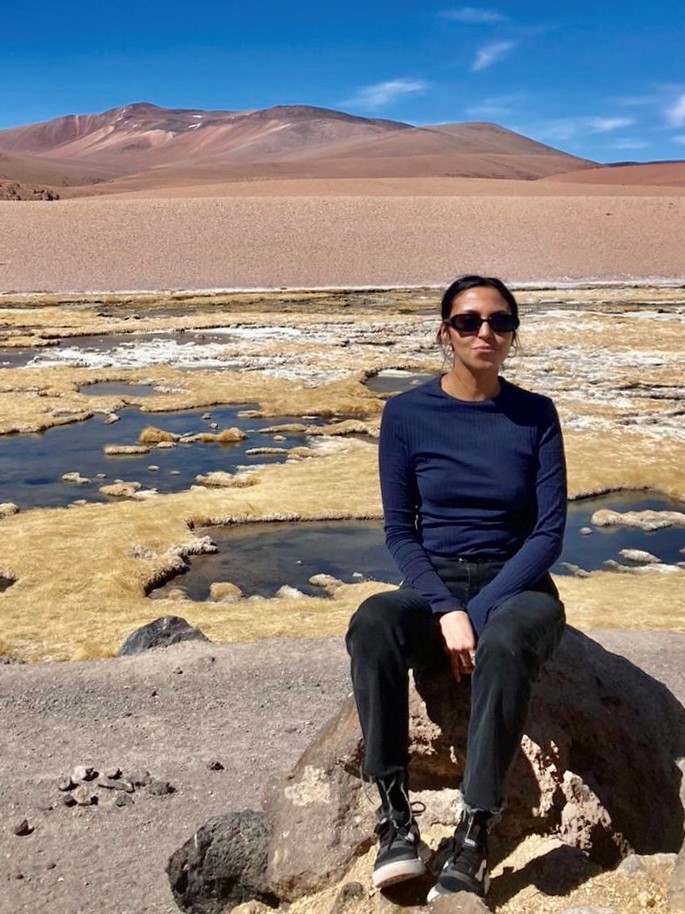 Dr Sophia
Valle-Cornibert
Dr Sophia
Valle-Cornibert
Supervisor: Prof Katy Jenkins
PhD abstract: In this thesis, I argue that expanding our comprehension of women's resistance within extractive contexts requires moving beyond impact-driven and anti-extractive narratives. While following the traces of women mobilising in the Atacama Desert, Chile, this research aims to conceptualise women's territory-based experiences and long-standing resistances concerning everyday life with large-scale mining. Drawing on a feminist and decolonial framework, this research critically explores women's diverse and interwoven experiences, particularly explored through the relational ontology of pluriversidad and articulated through the lens of senti-pensar and cuerpo-territorio. In this analysis, I emphasise the contributions of women's emotional, embodied, and territorial experiences to build situated and contextualised conceptualisations of their territory, their positionalities, and always-evolving resistances within the context of extractivism.The thesis is based on eight months of ethnographic fieldwork with a collaborative and participatory intentionality. By focusing on women's oral histories and participatory filmmaking, the research presents three specific arguments. First, it brings attention to women’s place-based imaginaries and representations of territory and breaks with dichotomous and romantic views that align or contrast them with hegemonic extractive representations. Instead, the thesis attempts to comprehend the co-existence of ambivalent conceptualisations rising between women’s diverse ecological, cultural, and extractive territory-imaginaries of the Atacama Desert. Secondly, this analysis provides a deep comprehension of women’s positionalities concerning everyday life with extractivism, arguing the need to extend beyond an impact-driven analysis due to the potential classification, categorisation, or dismissal of their narratives. Ultimately, going beyond the growing literature focusing on women’s resistance to extractivism, this research aims to broaden the analysis based on women’s resistances within contexts of extractivism, arguing that these extend beyond anti-mining narratives. As a result, this research introduces the perspective of Dignidad, a concept arising from women’s emotional, embodied, and territorial ontologies, thus constituting a fundamental idea through which to make sense of women’s situated and contextualised lived experiences and always-evolving resistances in the Atacama Desert. Therefore, this thesis provides an analytical exploration of women’s traces of dignidad, a perspective that is not static but dynamic and continuously being shaped through the experience of resistance.
Email: s.valle-cornibert@northumbria.ac.uk
Latest News and Features

Royal Honour as leading researcher awarded Polar Medal
Professor John Woodward has been awarded The Polar Medal in recognition of his outstanding…
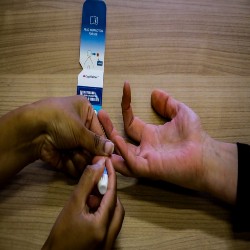
Northumbria University leads pioneering research to tackle hidden lead exposure in children
Pioneering research launches in Leeds to test new approach to assessing the risk to children…

International students at Northumbria embark on FA Cup dream
A team of international college students studying at Northumbria University could soon find…

Northumbria expands results day support for students
Northumbria University is expanding and enhancing the support it provides to students receiving…
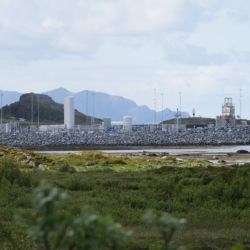
Supporting the ethical development of UK spaceports
A Northumbria University academic is helping to ensure the UK’s ambitions to build a thriving…

Research reveals Arctic region was permafrost-free when global temperatures were 4.5˚C higher than today
Scientists have found evidence that the Asian continent was free of permafrost all the way…

Northumbria wins recognition for expanding access to higher education
Northumbria University has been named Higher Education Institution of the Year at a prestigious…

Satellites observe glacier committing “ice piracy”
A glacier in Antarctica is committing “ice piracy” – stealing ice from a neighbour – in a phenomenon…
